Dungeons & Dragons, known around the world as D&D, is the most well-known and loved tabletop roleplaying game available today. For nearly 50 years people have gathered around a table and woven stories of magic, monsters and daring-do, while rolling shiny math rocks (dice) to decide the fate of their adventuring party.
D&D fifth edition tells us that it can be played purely in the “theater of the mind” with only the best D&D books and some dice needed, but if you have spent any time playing the game, you’ll know that the fun of the game is enhanced by using some cool accessories. Not all of the products listed here are strictly needed to play, but in the 30 years I’ve been slinging spells I’ve found these to be the best accessories to have at hand.
What’s the best D&D accessory?
Some people think that you only need one set of dice to play Dungeons & Dragons. These people are wrong and maybe a little unhinged. You can never have too many dice and, thankfully, there are thousands of dice to choose from. Whether you are looking for your first set of polyhedral dice for less than 10 bucks, or a giant bag of dice so all your players can borrow them, dice are the best accessory for you to have at your gaming table.
The best Dungeons & Dragons accessories
Chessex has been making D&D accessories for a long time now, and the Pound ‘o’ Dice is probably its best deal. For just 20 bucks you can get 100 dice to start your collection. While these are considered to be factory seconds, and don’t come in full-color sets, they’re perfectly good dice to use in any game, especially at this price.
If you are looking for something a little fancier you can always try the Wiz Dice Cup of Wonder, a 35 dice set (seven sets of five) that has a dice shaker and mimic box included.
D&D Beyond is a companion app for playing the game in the physical world and our top pick for best online D&D tools. In it, you can create up to six characters for your Fifth Edition games, and purchase digital copies of your favorite companion books. You can also access most of the basic rules and spells for free to help you get started on the game.
There are several levels of subscription too, if you want to up your game. The Master Tier — $5 a month ($30 for six months or $55 annually) allows you to share features from sourcebooks and adventure books with your entire group, rather than requiring everyone to buy their own copy and it’s the one we recommend.
If you’re the kind of D&D player who loves writing an in-depth backstory, takes careful notes during each session and enjoys a well-organized character sheet, the Field Notes 5E Journal was made specifically for you in mind. These small notebooks take everything that makes a normal Field Notes journal great, with its simple yet portable design, and they add character sheets and designated pages for inventory and notes you can keep as a single campaign journal.
As someone who plays multiple games with different groups of friends, I find these journals super helpful for keeping my character organized. There’s even a journal for Game Masters with extra details to make running the game easier as well.
Theater of the mind is a fun concept but it’s a hard sell when your spells require you to know exactly how many feet away a target is in any given direction. Having a good battle mat can make it a lot easier to imagine the course of a battle or the layout of a town. This set comes with several maps with imagery on them to better set the scene and some handy clips to stop the mat from rolling up. It also has dry-erase markers so you can sketch on top of it.
There are three maps in the set, each with a scene or blank space on either side as well as a grid pattern to easily measure the 5-foot spaces between characters.
Any resin 3D printer is going to give you excellent miniatures for your D&D game. The details are fantastic and it takes very little time to print six to eight minis in one go. If you don’t know where to find models I would recommend MZ4250’s patreon page where for as little as $1 a month you can access hundreds of 3D printable mini files or, if you want something more bespoke you can try Hero Forge, an online mini generator. Hero Forge lets you buy the physical minis or have the STL to print for youself.
If you are looking to build larger set pieces then check out our best 3D printers for even more choices.
When you reach later levels of a campaign, the conditions on your characters and monsters start to stack. Sleep, blind and “on fire” are just some of the conditions that can occur regularly. These color-coded rings sit around a standard mini base and make it easy to see which condition each character is suffering from.
I really like this particular set as it has blank rings and a white marker so you can create your own conditions and the box has a color key so you can see what each condition is at a glance. This is especially helpful when you’re stacking rings on top of each other.
If your games are more traditional and you don’t use D&D beyond then you might need a case to take with you to your GM’s house. This neat folio case has room for your dice, minis, a Player’s Handbook and your character sheet. The character sheet storage is especially helpful as it has a clear plastic cover you can mark with a dry-erase marker. This makes it easy to mark temporary hit point loss and other non-permanent conditions.
You have questions? We have answers.
Playing D&D can get complex and you’ll likely find yourself with a lot of books, dice and other accessories. To get started though you’ll need these six things:
- A character sheet from the D&D website
- A pencil (pencil not pen as you will need to change your stats)
- A set of polyhedral dice with 4, 6, 8, 10, 12, and 20 sides.
- At least some of the rules. We suggest a starter pack, the D&D Beyond rules, or the Player’s Handbook.
- An idea of what kind of game you want to play.
- A group of friends who want to play too.
With just these things, you can start playing D&D, and you’ll likely have a fun time doing it.
It doesn’t have to be. As a player, all you need is the things listed above. Or, if you’re the Game Master, you could pay $5 a month for D&D beyond and your players can share the books for free, making it an even less expensive proposition. Most of D&D occurs in the mind, with dice rolling thrown in for good measure. It can be as budget-friendly as you want it to be.
Most D&D games are broken down into two different types: campaigns and sessions. A session normally lasts anywhere from 2 to 8 hours depending on everyone’s schedule, and is the normal measure of a game. A campaign is the entirety of multiple sessions strung together. When your story reaches its conclusion a campaign ends and it is time to start a new one.










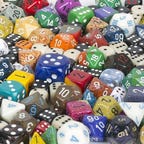
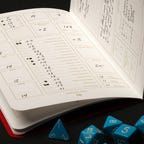
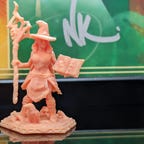
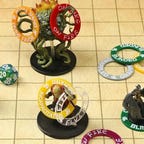
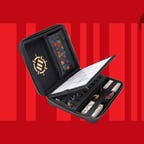










+ There are no comments
Add yours